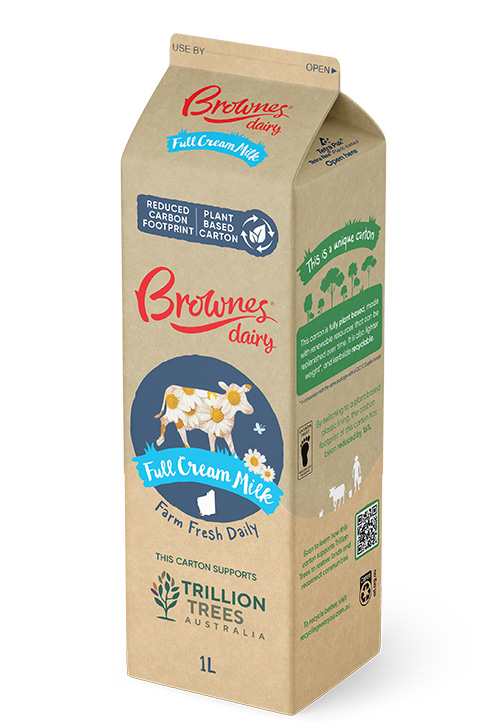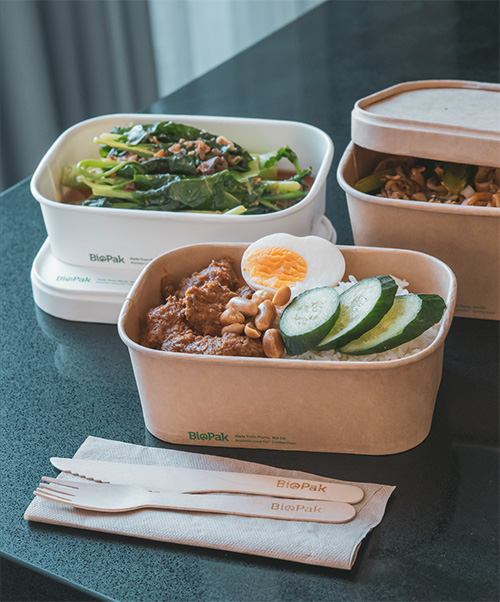Incorporating Renewable Materials is just one of the ten principles within the Sustainable Packaging Design Guidelines that help companies and packaging technologists to design sustainable packaging that will meet the 2025 National Packaging Targets.
So what are Renewable Materials? Well, they are materials made of natural resources, composed of a biomass from a living source, that can be sustainably grown and replenished continuously. There are a number of renewable materials available for packaging including sugarcane, bagasse, corn starch, wood fibres, bamboo, cotton, straw or biopolymers from a sustainable source.
Renewable materials, if sustainably grown and certified in the country in which the packaging is sold, can potentially offer lower environmental impacts than non-renewable alternatives. Undertaking a Lifecycle Assessment before you shift your packaging to renewable materials is paramount to ensure that the choice of material is an appropriate alternative. Another important factor in selecting renewable materials is the End of Use (EoU) of the packaging. i.e., will the packaging be able to be reused, recycled, or composted?
In addition, it is recommended that all renewable material packaging is verified to local and international certifications such as Forest Stewardship Council (FSC); the Program for the Endorsement of Forest Certification (PEFC)for timber/cellulose-based materials. Other renewable fibre and biobased materials will need to be certified either home compostable AS5810-2010 or commercially compostable AS4736-2006. It is also important that renewable fibre-based packaging is certified to have ‘no added PFAS’, as this treatment is commonly used for water and grease proofing. Packaging that is certified to these standards will confirm to consumers that there are no forever chemicals or potential toxins in the material and that the pack can be reused, recycled, and/or composted in the correct environmental conditions.
Some of the recent winners of the Australasian Packaging Innovation & Design (PIDA) Awards are using renewable materials in the packaging including Australia’s Most Sustainable Milk Cartons (Brownes Dairy) and FSC Rectangle Paper Containers (BioPak).
 Australia’s Most Sustainable Milk Cartons (Brownes Dairy)
Australia’s Most Sustainable Milk Cartons (Brownes Dairy)
With consumers becoming ever more conscious about their impact of the environment, the Brownes Dairy 1L milk in Tetra Rex® Plant-Based Craft cartons stands like a beacon of hope in the middle of the white milk supermarket shelf. The eye-catching packaging is a natural brown colour, fully renewable and made with renewable energy. The recent move to Tetra Rex Craft Plant Based drove a further weight reduction of just under 4%, taking further packaging out of the supply chain. Less packaging material is required to protect the same amount of nutritious milk, further enhancing the sustainability credentials of the carton.
To help, Brownes Dairy have incorporated the Australasian Recycling Label (ARL) into the pack design. The on-pack artwork provides clear information about its renewable source to aid consumer understanding and awareness of these unique cartons. This education is further amplified through the School Tours programme, which sees 10,000 primary aged school children come through Brownes Dairy’s doors each year.
Drawing attention to both the sustainability credentials of the cartons, but also to the great partnership Brownes Dairy has established with Trillion Trees, one that will support the reforestration of used farmland across Western Australia. With 90% of Australian consumers concerned about sustainability and believing that brands should be most responsible for the impact on the environment, this carton and design will drive standout against the competitive set and allow consumers the opportunity to support more sustainable packaging solutions as well as the reforestation initiatives via the Trillion Trees partnership. The community-based organisation has been active since 1979 in Western Australia and has planted more than 15 million trees.
 FSC Rectangle Paper Containers (BioPak)
FSC Rectangle Paper Containers (BioPak)
Plastic takeaway containers that are contaminated with food (think greasy curry, pasta and other oily foods) cannot be recycled and putting them in your recycling bin can jeopardise the entire bin of recycling.
The FSC certified rectangular paper containers have been created to replace the humble plastic container. They are renewable material PLA bioplastic lined, allowing them to carry hot, greasy foods without spoiling/ breaking. The PLA bioplastic lining is made from rapidly renewable materials. The footprint of these renewable materials is smaller than that of traditional plastics derived from fossil resources – Ingeo™ bioplastic for instance, has a footprint up to 80% lower.
Until now, using bioboard they have only been able to manufacture round paper bowls, however with new machinery and tooling, BioPak have been able to achieve the rectangular shape with the performance of a round paper bowl.
An average cafe using these containers will be able to avoid 455 kg of plastic a year using these alternatives BioPak FSC™ paper containers and lids. Industrially compostable to Australian AS4736 standards they are independently tested and verified to completely biodegrade within 120 days in a commercial compost facility, the end product is a non-toxic, nutrient-rich compost. BioPak has created a new brand-agnostic network called Compost Connect that connects foodservice businesses to industrial composters to help compost all certified compostable packaging and food scraps. So far, Compost Connect has diverted over 1,500 tonnes of waste from landfill, equivalent to taking 1,100 cars off the 975 cars off the road.
Not only are we seeing an increase in entries in the PIDA awards that incorporate renewable materials in their packaging, but more companies are ensuring that the material is certificated to the appropriate standards and the Australasian Recycling Label (ARL) is included on-pack. All of these changes are positive steps to meet the 2025 National Packaging Targets and to design packaging that can assist the circular economy.
Nerida Kelton MAIP
Executive Director, AIP
Vice President – Sustainability & Save Food, WPO
